This is not really an answer, and I can't jam it all into a comment. I just want to share my additional findings. (This is probably relevant to the Visual Studio compilers only.)
What also makes a difference is how you structure your loops. For instance:
Assuming the following struct definitions:
#define PCALLBACK ULONG64
#pragma pack(push)
#pragma pack(1)
typedef struct {
ULONG64 ui0;
USHORT w0;
USHORT w1;
//Followed by:
// PCALLBACK[] 'array' - variable size array
}DPE;
#pragma pack(pop)
(1) The regular way to structure a for loop. The following code chunk is called somewhere in the middle of a larger serialization function:
PCALLBACK* pDstClbks = (PCALLBACK*)(pDPE + 1);
for(size_t i = 0; i < (size_t)info.wNumCallbackFuncs; i++)
{
pDstClbks[i] = info.callbackFuncs[i];
}
As was mentioned somewhere in the answer on this page, it is clear that the compiler was starved of registers to have produced the following monstrocity (see how it reused rax for the loop end limit, or movzx eax,word ptr [r13] instruction that could've been clearly left out of the loop.)
PCALLBACK* pDstClbks = (PCALLBACK*)(pDPE + 1);
00007FF7029327CF 48 83 C1 30 add rcx,30h
for(size_t i = 0; i < (size_t)info.wNumCallbackFuncs; i++)
00007FF7029327D3 66 41 3B 5D 00 cmp bx,word ptr [r13]
00007FF7029327D8 73 1F jae 07FF7029327F9h
00007FF7029327DA 4C 8B C1 mov r8,rcx
00007FF7029327DD 4C 2B F1 sub r14,rcx
{
pDstClbks[i] = info.callbackFuncs[i];
00007FF7029327E0 4B 8B 44 06 08 mov rax,qword ptr [r14+r8+8]
00007FF7029327E5 48 FF C3 inc rbx
00007FF7029327E8 49 89 00 mov qword ptr [r8],rax
00007FF7029327EB 4D 8D 40 08 lea r8,[r8+8]
00007FF7029327EF 41 0F B7 45 00 movzx eax,word ptr [r13]
00007FF7029327F4 48 3B D8 cmp rbx,rax
00007FF7029327F7 72 E7 jb 07FF7029327E0h
}
00007FF7029327F9 45 0F B7 C7 movzx r8d,r15w
(2) So if I re-write it into a less familiar C pattern:
PCALLBACK* pDstClbks = (PCALLBACK*)(pDPE + 1);
PCALLBACK* pEndDstClbks = pDstClbks + (size_t)info.wNumCallbackFuncs;
for(PCALLBACK* pScrClbks = info.callbackFuncs;
pDstClbks < pEndDstClbks;
pScrClbks++, pDstClbks++)
{
*pDstClbks = *pScrClbks;
}
this produces a more sensible machine code (on the same compiler, in the same function, in the same project):
PCALLBACK* pDstClbks = (PCALLBACK*)(pDPE + 1);
00007FF71D7E27C2 48 83 C1 30 add rcx,30h
PCALLBACK* pEndDstClbks = pDstClbks + (size_t)info.wNumCallbackFuncs;
00007FF71D7E27C6 0F B7 86 88 00 00 00 movzx eax,word ptr [rsi+88h]
00007FF71D7E27CD 48 8D 14 C1 lea rdx,[rcx+rax*8]
for(PCALLBACK* pScrClbks = info.callbackFuncs; pDstClbks < pEndDstClbks; pScrClbks++, pDstClbks++)
00007FF71D7E27D1 48 3B CA cmp rcx,rdx
00007FF71D7E27D4 76 14 jbe 07FF71D7E27EAh
00007FF71D7E27D6 48 2B F1 sub rsi,rcx
{
*pDstClbks = *pScrClbks;
00007FF71D7E27D9 48 8B 44 0E 08 mov rax,qword ptr [rsi+rcx+8]
00007FF71D7E27DE 48 89 01 mov qword ptr [rcx],rax
00007FF71D7E27E1 48 83 C1 08 add rcx,8
00007FF71D7E27E5 48 3B CA cmp rcx,rdx
00007FF71D7E27E8 77 EF jb 07FF71D7E27D9h
}
00007FF71D7E27EA 45 0F B7 C6 movzx r8d,r14w
